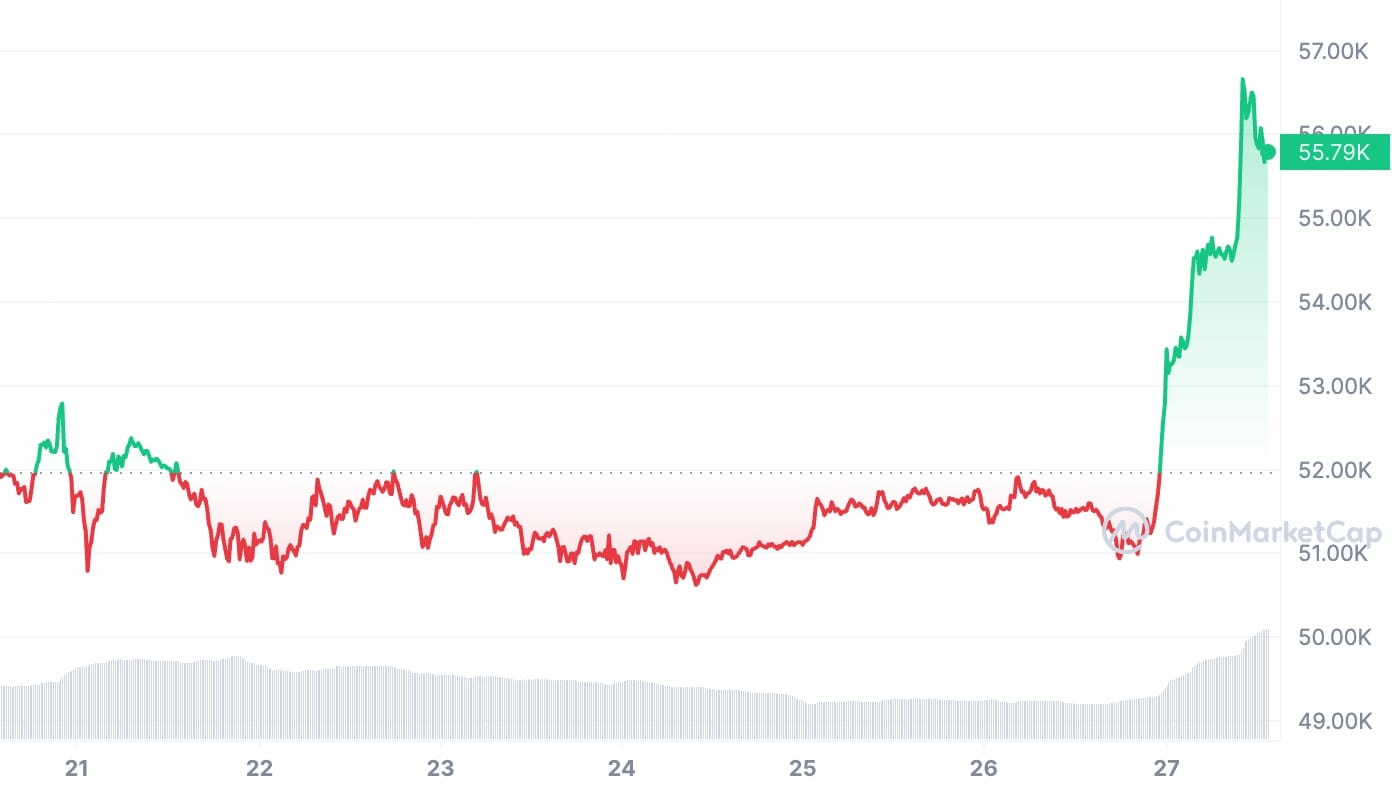Table of Contents
According to two staff members of the European Central Bank, Bitcoin is still a harmful phenomenon with no inherent worth, even if it has been approved as an asset to be included in ETFs in the US.
The OG cryptocurrency just crossed its two-year high today, sitting at $56,287 as of writing – 21% away from it's all-time high, and back above a total market capitalization of over $1 trillion.
But not everyone feels the same about Bitcoin. In a recent blog post titled "ETF approval for bitcoin – the naked emperor's new clothes," consultant Juergen Schaaf and director general of market infrastructure and payments at the Frankfurt institution Ulrich Bindseil reiterated their enduring conviction that digital currency presents risks to society and the environment.
That is despite the success of spot Bitcoin ETFs since their launch.
After a legal hurdle the year before, the SEC licenced the first US spot Bitcoin ETFs in January. Since its establishment, there has been a net inflow of $5.2 billion into the group of ten portfolios.

The recent spike in Bitcoin's price has Bindseil and Schaff concerned that it could be short-lived.

In a section titled "So why is this dead cat bouncing so high?" they said: "For many, the rally in the autumn of 2023 was initiated by the prospect of an imminent turnaround in the US Federal Reserve's interest rate policy, the halving of the BTC mining rewards in spring and later the approval of the Bitcoin spot ETF by the SEC."
But they added: "Still, this could turn out to be a flash in the pan."
According to Bindseil and Schaaf, the total worth of Bitcoin assets primarily reveals the magnitude of the possible consequences of failure.
"Bitcoin has failed on the promise to be a global decentralised digital currency and is still hardly used for legitimate transfers. The latest approval of an ETF doesn't change the fact that Bitcoin is not suitable as means of payment or as an investment," noted the ECB officials.
They concluded that "Bitcoin's price level is not an indicator of its sustainability."

On the other hand, perspectives from the crypto community and some financial analysts suggest a recognition of Bitcoin's enduring presence and its distinct role in the broader financial ecosystem.
Bitcoin's value proposition extends beyond traditional financial metrics and into the realm of digital asset innovation, serving as a catalyst for rethinking money and financial sovereignty. While the ECB's concerns regarding investment risk and utility are valid from a conventional standpoint, Bitcoin embodies the principles of decentralization, scarcity, and transparency. These attributes contribute to its appeal as an alternative asset class that challenges traditional banking paradigms and offers a new perspective on value storage and transfer in the digital age.
The introduction of Bitcoin ETFs and the integration of cryptocurrency services by traditional financial firms underscore a broader institutional acknowledgment of Bitcoin's potential as an investment.
The ECB's cautionary stance highlights the importance of regulatory clarity and consumer protection in the burgeoning cryptocurrency space. However, dismissing Bitcoin's value outright overlooks the broader implications of blockchain technology and digital assets for the future of finance. Bitcoin, with its unique properties and growing ecosystem, represents more than just an investment – it's a challenge to the status quo and a exploration into the possibilities of a decentralized financial system. And that's why we're here for the ride.
Elsewhere















